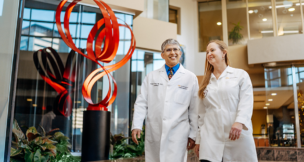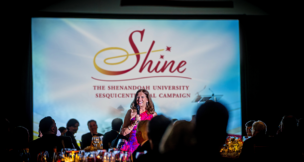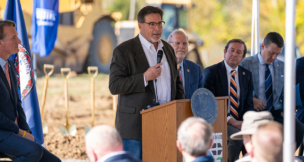Tennessee veterinary school crosses state lines
Tim Thornton //February 2, 2017//
The Lincoln Memorial University College of Veterinary Medicine is the newest vet school in Tennessee — and in Virginia. In fact, it’s the newest in the country.
While some of the school’s facilities are on the main LMU campus in Harrogate, Tenn., students get their hands-on training 12 miles away in Ewing, Va., at the DeBusk Veterinary Teaching Center. The campuses sit on either side of the Cumberland Gap.
“Pete DeBusk is the chairman of the board of trustees,” says John Dascanio, the vet school’s executive associate dean. “He’s a benefactor of the university and a great friend of the university.”
A Virginia native, DeBusk is the owner and chairman of DeRoyal Industries in Knoxville, Tenn. He has an Angus farm near Ewing, a Lee County community, and donated part of his property to the fledgling school. “That facility became sort of an ideal solution to where we could keep our animals,” Dascanio says.
LMU, a private university offering bachelor’s, master’s and doctoral degrees, was chartered in 1897. The vet school welcomed its first class of 87 students in 2014. It has just over 300 students in three classes now.
Those students spend about half their day on the Harrogate campus and the other half at the DeBusk center in Ewing. During their final year, they’ll also spend time with vets and at veterinary hospitals that have partnered with the school to give students real-world experience.
Before they enter that final year, Dascanio says, students deal with a variety of animals, ranging from household pets to beef cattle. While the majority of students will probably work in small-animal practices, they need to be prepared, Dascanio says, for the occasional goat or pot-bellied pig.
“We also want to open students’ eyes to all the possibilities out there,” Dascanio says. Students who grow up in suburbia may think of vets as small-animal doctors because that’s what they’ve seen. Introducing students to cows and horses may open up a new world, but most still end up in small-animal practices.
“I think a lot of people choose large-animal [practices] because it’s a lifestyle choice more than anything else,” Dascanio says. “They enjoy being around farm animals. They enjoy being around farmers. They want to contribute back to agriculture. That’s sort of a different goal in life.”
An economic impact study conducted before the first class entered the vet school defined its primary impact area as 14 counties in Tennessee, 10 in Kentucky and three in Virginia. In its first year of operation, the school was predicted to have a $16.6 million economic impact. That impact was projected to grow as the school grows.
-













